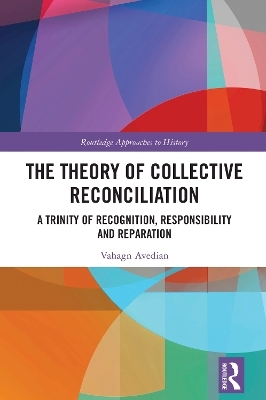
The Theory of Collective Reconciliation
A Trinity of Recognition, Responsibility and Reparation
Seiten
2024
Routledge (Verlag)
978-1-032-32593-4 (ISBN)
Routledge (Verlag)
978-1-032-32593-4 (ISBN)
What does reconciliation mean and entail? Is collective reconciliation for entire societies or nations possible? This book aims to present it as a highly achievable albeit difficult and complex goal requiring political and collective commitment, resources, and—most importantly—the will to change.
What does reconciliation mean and entail? Is collective reconciliation for entire societies or nations possible? This book aims to present it as a highly achievable albeit difficult and complex goal requiring political and collective commitment, resources, and – most importantly – the will to change.
Reconciliation is the synthesis and an overarching process consisting of a trinity of recognition, responsibility, and reparation. Through comparative case studies where these different aspects have been implemented in a variety of degrees and combinations, the book illustrates how these constituent parts relate to each other and how they can enhance and complement one another. It also investigates whether there are scenarios where the omission of a certain part can in fact have a positive impact on the reconciliatory process in the short and long terms, the extent to which the order in which different measures are implemented matters, and how national cases differ from international ones.
This volume is aimed at postgraduates, researchers, and academics of peace and conflict studies, as well as history, social sciences, political sciences, and legal studies.
What does reconciliation mean and entail? Is collective reconciliation for entire societies or nations possible? This book aims to present it as a highly achievable albeit difficult and complex goal requiring political and collective commitment, resources, and – most importantly – the will to change.
Reconciliation is the synthesis and an overarching process consisting of a trinity of recognition, responsibility, and reparation. Through comparative case studies where these different aspects have been implemented in a variety of degrees and combinations, the book illustrates how these constituent parts relate to each other and how they can enhance and complement one another. It also investigates whether there are scenarios where the omission of a certain part can in fact have a positive impact on the reconciliatory process in the short and long terms, the extent to which the order in which different measures are implemented matters, and how national cases differ from international ones.
This volume is aimed at postgraduates, researchers, and academics of peace and conflict studies, as well as history, social sciences, political sciences, and legal studies.
Vahagn Avedian holds a PhD in history and specializes in peace and conflict research with focus on human rights and democracy. He is the author of Knowledge and Acknowledgement in the Politics of Memory of the Armenian Genocide (Routledge, 2018).
Introduction 1. Reconciliation 2. Recognition 3. Responsibility 4. Reparation. Conclusion: Reconciliation: A Utopic Buzzword or an Achievable Goal?
| Erscheinungsdatum | 02.08.2024 |
|---|---|
| Reihe/Serie | Routledge Approaches to History |
| Verlagsort | London |
| Sprache | englisch |
| Maße | 156 x 234 mm |
| Gewicht | 707 g |
| Themenwelt | Geschichte ► Allgemeine Geschichte ► Neuzeit (bis 1918) |
| Sozialwissenschaften ► Politik / Verwaltung ► Europäische / Internationale Politik | |
| Sozialwissenschaften ► Soziologie ► Spezielle Soziologien | |
| ISBN-10 | 1-032-32593-3 / 1032325933 |
| ISBN-13 | 978-1-032-32593-4 / 9781032325934 |
| Zustand | Neuware |
| Haben Sie eine Frage zum Produkt? |
Mehr entdecken
aus dem Bereich
aus dem Bereich
Europa 1848/49 und der Kampf für eine neue Welt
Buch | Hardcover (2023)
DVA (Verlag)
48,00 €
Giordano Bruno - ein ketzerisches Leben
Buch | Hardcover (2024)
C.H.Beck (Verlag)
29,90 €


